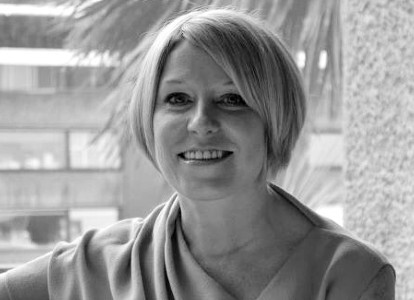Mary Walsh is a senior communications specialist with a longstanding track record of leading communications across a range of high profile brands and businesses. She began her career in consultancy at Ogilvy, spearheading media campaigns and gaining significant campaigning and issues/crisis management experience.
Following her time at Ogilvy she took on her first in-house role, creating a communications function for PKF, the professional services firm, and then became Director of Corporate Relations at Lloyds Banking Group where she was the communications lead and advisor to the Board and executive team for ten years.
For the last eleven years she has been Director of Communications at Eurostar, the high speed rail operator linking the UK with mainland Europe, with responsibility for media relations, internal communications, public affairs and the environmental and sustainability programme.
1. Sustainability must be high on the agenda for a travel company like Eurostar. How do you go about building a comms strategy for it?
Sustainability is at the very heart of Eurostar’s business and customer offer so the company has always had a strong sense of responsibility for reducing its carbon footprint and promoting sustainable travel.
From its early days of operation Eurostar championed the benefits of high speed rail over plane and encouraged the switch to sustainable modes of transport for short haul international travel. With a Eurostar journey between London and Paris emitting 90% less carbon emissions than the equivalent short haul flight, the contribution made by high speed rail in combatting climate change is significant.
I have always been of the view that for a business to be credible and meaningful, the sustainability strategy has to be deeply embedded in the business and fully aligned to the purpose, culture and ethos of the organisation.
Eurostar’s commitment to building a sustainable business is embodied in its ’Tread Lightly’ environmental programme, which was originally established in 2007 and articulates its sustainability principles, ambitions and targets These focus primarily on energy efficiency of the fleet, reduction of plastics and waste, and sustainable, responsibly sourced catering.
To build an impactful communications plan the engagement of colleagues is critical, particularly in a consumer-facing business as your people are the key interface with customers. At Eurostar we created a team of Tread Lightly ambassadors who played an active role in building and delivering our Tread Lightly commitments and engaging the wider teams in these efforts.
As a result, Tread Lightly and sustainability became part of the DNA of the business and many of the actions and initiatives to improve the environmental performance came from colleagues. A good example of this is the design and delivery of the onboard catering service which resulted in a three star rating (the highest rating achievable) from the Sustainable Restaurant Association.
With a clear action plan in place, underpinned by measurable targets, a robust analysis of the audiences and strong colleague/stakeholder engagement, effective and creative communication then plays a pivotal role in delivering on the ambitions.
In today’s fast-moving and overcrowded landscape the campaign has to be highly visual, interactive and relevant to the audiences. It will also have greater impact if you can demonstrate the endorsement of credible third parties in the sustainability arena as this lends weight to the campaign.
2. Who are the key stakeholders for sustainable messaging at Eurostar and why do they care?
The key audiences for most businesses are customers, colleagues, governmental stakeholders, opinion formers (eg pressure groups, NGOs) and media - both mainstream and social.
In a world where customers have huge choice, being able to promote a product/service that is built on sustainable principles provides a key point of competitive advantage - but only if this is rooted in the behaviour of the business and its people. If the claims are not authentic and credible then the business will be regarded cynically and seen as indulging in ‘greenwash’.
Buy-in from key external stakeholders - whether within government or opinion forming organisations including media outlets - can be extremely valuable as it can have a profound impact on the public policy agenda and the overall operating environment .
The other key stakeholders are clearly shareholders who are increasingly focused on sustainability as they are concerned with creating long term value. As expectations and scrutiny of corporate responsibility increase, so do the investor requirements of businesses.
3. How did you help Eurostar stand out from the crowd with authentic messaging?
When you are building a sustainability communications programme, authenticity is paramount. Unless the plan is firmly rooted in the organisation and its objectives, it will struggle to get traction and meet its goals.
The messaging needs to be inspiring and ambitious in order to mobilise both your people and your customers and if possible present a call to action for customers with clear benefits.
To create differentiation I focused Eurostar’s messaging on the environmental benefits of high speed rail travel, as well as the considerable advantages in terms of speed, comfort and a seamless travel experience from city centre to city centre. This served to emphasise the unique attractions of travel with Eurostar over any other operator and reinforced its eco-friendly credentials.
Creativity is also key to standing out from the crowd and a good example of this was the decision to run the first plastics free rail service to mark the 25th anniversary of the business in 2019. This initiative was staged on a commercial service experienced by customers, stakeholders, colleagues and media to demonstrate the sustainability ambitions for the future of the business and the crucial role that high speed rail can play in combatting climate change. It was an extremely successful initiative resulting in widespread media exposure and commentary about the importance of high speed rail in the climate change debate.
4. In your opinion, how can comms leaders impact their organisation’s sustainability agenda beyond messaging and comms?
To my mind, communications leaders are very well-placed to influence their organisations’ sustainability agendas as they are at the heart of the relationship with all the key internal and external stakeholders.
In my role at Eurostar I was on the executive committee and at the forefront of advising the Board and exco on business policy decisions, including our sustainability programme.
As the communications lead, you are also very close to colleagues and their priorities and what motivates them which is particularly valuable in this context.
5. You have recently moved on from Eurostar what was your biggest takeaway?
I was eleven years at Eurostar and feel proud to have led the communications for such an important and high profile brand.
I think my main takeaway is that the role of communications has become ever more critical in creating positive engagement with colleagues/customers and building a strong, favourable reputation, particularly in the very unpredictable environment that we have experienced over the last couple of years.
It seems to me that one of the big positives to have come out of this difficult period is the increased understanding among executive teams of the importance of effective and creative internal communications and engagement, which can have a transformative effect on attracting/retaining talent and the ability of the business to deliver against its strategy.
6. What’s next?
I think this is a very interesting time for communications professionals whose expertise and experience are much in demand. Many businesses are having to adapt their operations and the way they present and market their products/services.
To navigate these challenges successfully and bring your people and your stakeholders with you, requires strong leadership and skilful communications.
Having led communications in two complex regulated industries at Lloyds Banking Group and Eurostar - and in the case of Eurostar with a significant European dimension - I am keen to bring my skills and experience to organisations where I can make a difference and play a key role in their advancement and success.
Thank you, Mary.
The Works Search is a search consultancy specialising in PR and corporate communications. We have unrivalled matching abilities and are known for finding the top 5% performers in the industry - the ones who deliver and make your reputation great. For more advice or market insights, do get in touch with us on 0207 903 9291 or email sarah@the-works.co.uk


